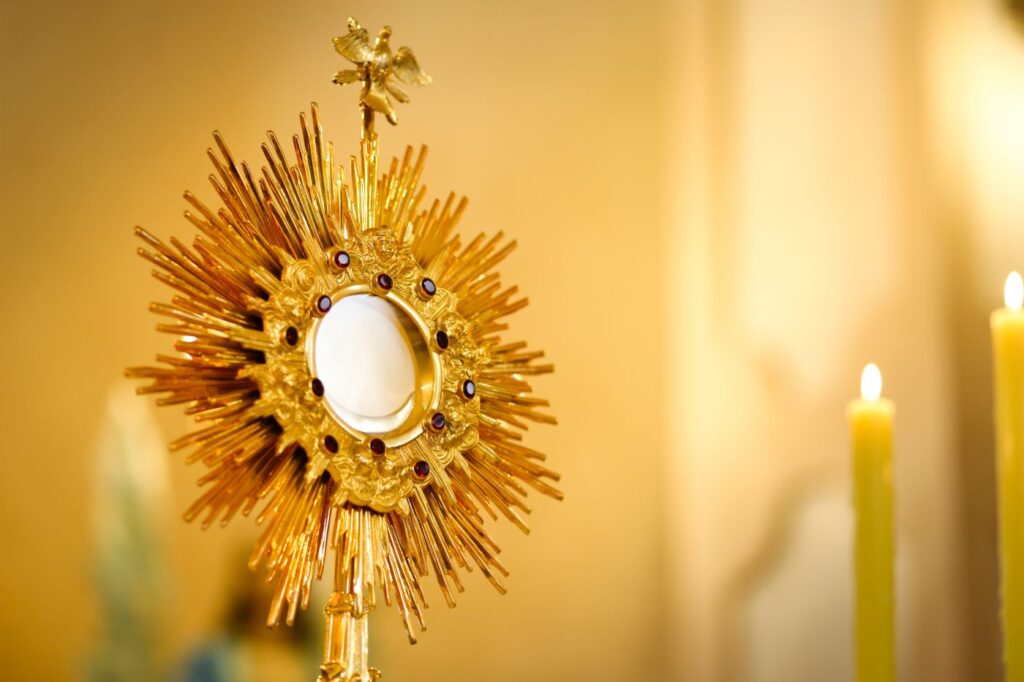The name Francis X. Maier may not be well-known outside the inside circles of ecclesiastical life because he has worked diligently but effectively behind the scenes. He served for twenty-three years as senior aide to Archbishop Charles Chaput in the Archdiocese of Denver and then in the Archdiocese of Philadelphia. Before that, he served for fifteen years as editor-in-chief of the National Catholic Register newsweekly, and earlier as a screenwriter and story analyst based in Los Angeles. He is currently a senior fellow in Catholic Studies at the Ethics and Public Policy Center in Washington, D.C.
Maier has written an excellent book, True Confessions: Voices of Faith from a Life in the Church, just released by Ignatius Press, that should rightfully make his name better known. In this concise and readable book, Maier summarizes the frank and in-depth interviews that he conducted with 103 bishops, clergy, religious, and lay men and women from various backgrounds over a seventeen-month period, from December 2020 through May 2022. While the persons interviewed do not hesitate to point out the shortcomings that they see in the life of the Church as well as her strengths, they do so out of love for the Church and a fervent desire to fix the flaws of the human failings of its leaders and members.
In his introduction to the book, Archbishop Chaput writes:
At heart, the Church is a “she”, not an “it”: the Bride of Christ; a mother of tenderness and the teacher of truth. And even in an age that derides her and dismisses the need for a God; even in an age when her weakness is often brutally obvious, the Church is younger, stronger, and more beautiful than her enemies have the capacity to understand or see.
Start your day with Public Discourse
Sign up and get our daily essays sent straight to your inbox.
Then Archbishop Chaput added a personal note about Maier. He wrote:
In Denver, in the early days of our collaboration, I sometimes stopped by Fran’s office at the end of the day to think out loud or exchange ideas. I asked him once why he worked for the Church when he could do something else that paid more. He looked at me quizzically, and then said, “Because I love her.”
In Chapter One of the book, Maier then explains why he loves the Church:
I love the Church because she is my home, my extended family, the mother who takes us back whatever our failures and mistakes. I love her for the grandeur of the art, music, law, architecture, and literature she has inspired. I love her for the brilliance of her intellectual legacy, which has no parallel in human experience. I love her for the good that remains in the civilization she shaped. I love her for her patience and mercy. I love her because she treasures and refuses to abandon the weak. I love her above all because what she teaches is salvific and true. There has never been a Christianity without the Church. She’s essential to the Christian life. The Church preceded the Gospels, not the other way around. And the Christian faith has never been merely a personal relationship with God, as important as that is. It has always been, beginning in the Upper Room, an assembly of believers, an ekklesia—a Church. I love the Church despite the sins of her leaders and her people, including my own.
The various chapters of the book consist of asking different audiences why they love the Church and what they would do to correct any perceived shortcomings in the leadership or life of the Church. While two chapters are interviews of priests, deacons, and bishops (not including me), the vast majority of people interviewed are lay Christian faithful, including a diocesan finance officer, the president of an investment advisory firm, university professors, theologians, legal scholars, business people, social scientists, journalists, immigrants, philanthropists, leaders of lay apostolates, husbands, wives, homeschooling mothers, and non-Catholic Christians. He asks them questions like:
Do you love the Church? If so, why, and what do you love about her?
What are your impressions of the Church, and have they changed over the years?
What are the biggest mistakes a diocese or parish typically makes?
What do you see as the major problems in the Church right now?
What issues, particularly in the United States, need to be addressed for a renewal of the Church to take place?
When you look for practical sources of hope right now, what are they?
Since so many people offer their opinions in this book, it is not surprising that they do not all agree, nor do all share the same advice. But that is one of the attractive qualities of this book, in that the reader will hear a variety of voices, some of whom they may identify with and others with whom they may not. A key indicator of what readers might expect in these answers is the number of times the following words appear in this book: Church–732, God–152, Jesus–70, faith–255, hope–63, and love–116.
The title of the book comes from the 1981 film True Confessions, based on the crime novel of the same name by John Gregory Dunne. As Maier explains in the final chapter, True Confessions is
not a happy portrait of the Church, her people, or her clergy. . . . The heart of both the novel and the film is the fractious relationship between two Catholic brothers: Des and Tom Spellacy. Des, played in the film by Robert De Niro, is a rising young monsignor, chancellor of the archdiocese, right hand to the cardinal, and on the fast track to be a bishop. Tom (Robert Duvall, in one of his finest roles) is an LAPD detective; the “black sheep” son of their Irish Catholic family. Cynical toward life in general and the Church in particular, Tom Spellacy is the lens through which the story unfolds. Tom is a complicated soul: resentful of his brother’s perceived goodness, calloused by the meanness of the streets, but also protective of his brother’s reputation. Des Spellacy is no less complex: smart, shrewd, ambitious, and (when necessary) ruthless—and also keenly aware of his own sin of pride, masked by a veneer of priestly piety. Onto Tom’s police plate drops the case of the murdered young woman. Where it leads provides the rest of the drama.
His point is that
alongside the great good that can be achieved through Christian engagement in public leadership, great harm can be done to the Church and her mission when her people and her clergy confuse material success with service to the Gospel. A comfortable Church, a colluding Church, a publicly esteemed Church can very easily become a dead Church. And when faith is merely skin deep, it’s worth remembering that societies sooner or later shed their dead skin.
To prevent this disintegration of the Church’s vitality, Maier proposes nothing less than the call to sainthood: “We moderns tend to think that the era of the saints is over. But we’re wrong. It’s always the era of the saints.” This imperative of personal sanctity is not confined to clergy or consecrated religious, but extends to each and every person: “The task of any ‘new reformation,’ any purifying re-formation of Church and world, begins with each believer.”
In the end, a good book leaves the reader hungry for more, and that is how I felt when I reached its end. We hear directly from Maier only in the preface and chapters one and eleven, while the rest of the chapters are a blend of interview responses with Maier’s brief commentary. Those interviews provide a helpful cross-section of views on the strengths of the Church and suggestions for addressing the weaknesses of ecclesial life. But I found myself wanting to hear more from Maier himself because he obviously has a lot of wisdom to share.
For example, I took solace as a bishop in these words:
Bishops in the Church tend to get blamed for everything. And sometimes they earn it. But bishops didn’t invent the birth control pill. They didn’t create the sexual anarchy that flowed from it. Bishops didn’t invent the transistor, or the microchip, or the cell phone, or video games, or gay dating apps, or the internet cocoon of pornography that’s destroyed millions of families and vocations. And bishops don’t have a magic wand to cancel out the massively negative influence of popular culture on their people.
Maier also has sound advice for everyone else in the Church when he says that we are
harvesting the effects of a century of Catholic assimilation and naïve optimism about the compatibility of Catholic teaching and American culture. I’ve always believed in our potential as Catholic Christians to be a leaven in American life. It just hasn’t worked out that way. Of course, that can change. But it requires leaders, and their people, who think in terms of the long haul and commit to missionary witness as their first priority in thought and deed.
Maier’s love for the Church comes through in this book and is why others who love the Church will want to read it. Perhaps we can hope for a sequel in which we will get to hear more of Maier in his own words.
Image by sidneydealmeida and licensed via Adobe Stock.












